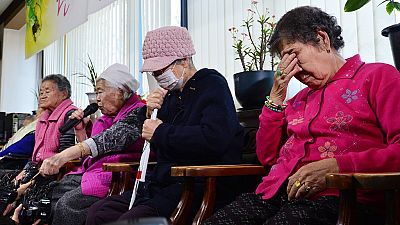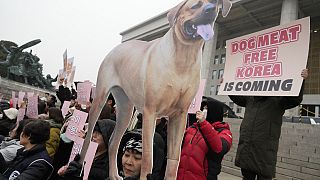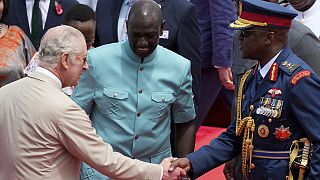South Korea
Japan and South Korea are a step closer to the final settlement on the issue of “comfort women”, a case that mostly affected a few Korean women who were subjected to sexual slavery by Japanese Imperial Army during the Second World War.
Seoul and Tokyo concluded the case on Monday in the South Korean capital. They agreed to end this historic dispute which has poisoned relations between the two countries.
Japan has agreed to pay 7.5 million euros in compensation to 46 of these women who are still alive.
In addition, Seoul is cooperating with associations of victims to move a statue symbolizing the suffering of comfort women, which is currently in front of the Japanese Embassy.
Fumio Kishida, Japanese Foreign Minister said, “the comfort women system existed because of involvement of the Japanese military and the Japanese government is fully aware of its responsibility.”
He continued, “Monday’s agreement is not only to the benefit of the two signatories but this will contribute more broadly to peace and stability in the region.”
Yun Byung-Se, South Korean Foreign Minister, reassured that this agreement will be “final and irreversible” if Japan fulfills its responsibilities. Korea has also promised to raise women related issues in the upcoming international summits.
The fate of the dozens of women enslaved by Japanese soldiers aroused a lot of debates in South Korea. Fumio Kishida said Japanese Prime Minister Shinzo Abe himself would have gone up to the victims to express his apology.
Since coming to power in February 2013, the South Korean President Park Geun-Hye adopted an uncompromising position on the issue. Very recently, she presented this dispute as the “biggest obstacle” to the improvement of bilateral relations.
Japan, which occupied Korea from 1910 to 1945 , was not in good diplomatic relations with South Korea. The agreement is seen as a major step in rectifying their relation.
In 1993, Japan had pleaded guilty in the exploitation of these women. A fund was then established to pay the women. However, the compensation was done by private organizations but not the Japanese government.













Go to video
A Nigerian schoolgirl abducted by extremists 10 years ago is rescued pregnant, with 3 kids
01:13
Sex offender register in the works in Ethiopia
02:33
Sexual assaults rise in conflict-hit Central African Republic
02:25
Girls in Congo learning how to defend themselves through martial art
Go to video
UN reports a 35% increase in people affected by violence in South Sudan
Go to video
In a global first, Gambia could reverse its ban on female genital cutting